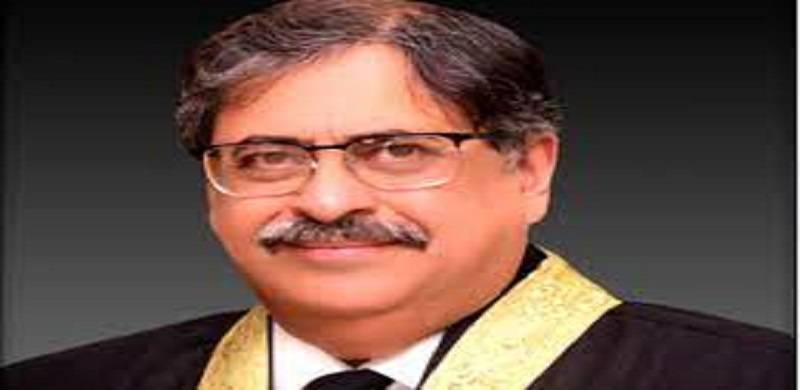
Islamabad High Court (IHC) Chief Justice Athar Minallah expressed anger over the practice of enforced disappearances in the country, saying legal action could be initiated against government officials under Article 6 if the issue was not resolved.
While hearing the case of a missing journalist, Mudasir Naru, Justice Minallah observed that there were thousands of families whose loved ones had gone missing but no one listened to them. He added that the commission for inquiry of enforced disappearances was irrelevant as all it did was postpone hearings.
Justice Minallah said that Pakistan was a state with a constitution and law but that did not seem to be the case when it came to the issue of enforced disappearances. The judge blamed the state for the epidemic of enforced disappearances saying that not even a terrorist could be killed without a trial and that no one has the authority to tag someone else as a terrorist.
Talking about the role of the state in such cases, Justice Minallah said that forcibly disappearing people seemed to be a state-sanctioned policy. He added that the current and previous chief executives could be held responsible for this crime against humanity. "Former military dictator Gen Pervez Musharraf admitted to this crime in his autobiography but still, there was no action against him," he added.
While remarking on the freedom of the press, he said that he was not sure that the media was free as it did not bring to prominence such cases.
Attorney General of Pakistan (AGP) said that people should take to the streets to protest against this issue because not everything can be resolved by courts. The AGP added, while responding to the judge's remarks about article 6, that government can’t even enforce sentences given under Article 6.
While hearing the case of a missing journalist, Mudasir Naru, Justice Minallah observed that there were thousands of families whose loved ones had gone missing but no one listened to them. He added that the commission for inquiry of enforced disappearances was irrelevant as all it did was postpone hearings.
Justice Minallah said that Pakistan was a state with a constitution and law but that did not seem to be the case when it came to the issue of enforced disappearances. The judge blamed the state for the epidemic of enforced disappearances saying that not even a terrorist could be killed without a trial and that no one has the authority to tag someone else as a terrorist.
Talking about the role of the state in such cases, Justice Minallah said that forcibly disappearing people seemed to be a state-sanctioned policy. He added that the current and previous chief executives could be held responsible for this crime against humanity. "Former military dictator Gen Pervez Musharraf admitted to this crime in his autobiography but still, there was no action against him," he added.
While remarking on the freedom of the press, he said that he was not sure that the media was free as it did not bring to prominence such cases.
Attorney General of Pakistan (AGP) said that people should take to the streets to protest against this issue because not everything can be resolved by courts. The AGP added, while responding to the judge's remarks about article 6, that government can’t even enforce sentences given under Article 6.

